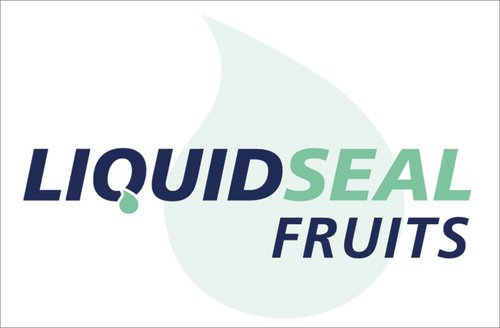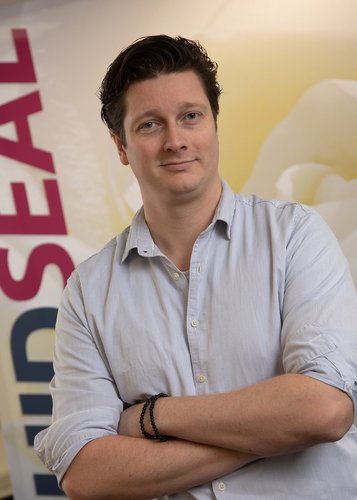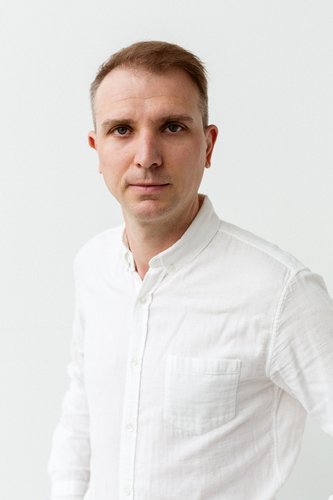 お問い合わせ
お問い合わせ
ご質問ございますか?また、技術サポート、
あるいはサンプルがが必要ですか?
サンプル請求
〈クラレポバール®〉用途別銘柄検索

26.05.2021
Liquidseal's innovative coatings are the sustainable way to keep fruit and vegetables fresh − helped by high-quality PVOH materials from Kuraray. An interview with Glenn Groenewegen, R&D Manager at Liquidseal, and Joris Bohets, Market Development Manager at Kuraray’s Poval resin business.

Leiden/Hattersheim, May 2021. According to the German aid organization Welthungerhilfe, 1.3 billion tonnes of food are thrown away every year. About a third of this amount is food that has gone off or was damaged during transport. Innovative coating technology from the Dutch company Liquidseal offers a way to reduce food waste. An ultra-thin environmentally friendly coating on fruit, vegetables and fragile petals seals in the freshness of food and flowers and greatly increases their shelf life. Kuraray’s PVOH (polyvinyl alcohol) materials from play a key role in this technology. In this interview, Glenn Groenewegen, R&D Manager at Liquidseal, and Joris Bohets, Market Development Manager at Kuraray, explain what is important in the development of such sustainable technologies.
Mr. Groenewegen, how can Liquidseal coatings help reduce food waste?
Glenn Groenewegen: When fruit and vegetables come into contact with oxygen, oxidation starts and micro-organisms are able to breed faster. Moreover, the fruits rapidly lose moisture. As a result, the natural structure of the products starts to decompose. In other words, the fruit or vegetable goes off. To slow this process, so far agricultural producers have used coatings based on wax, sugar and various solvents – or the produce is wrapped in additional plastic packaging.
So Liquidseal now offers a more effective and more environmentally friendly method?
Groenewegen: That's right. As in the waxing method, a very thin layer of our coating is applied directly to the peel of fruit such as oranges, lemons and mangoes. The coating has outstanding barrier properties which are far superior to the methods used to date – even though the coatings are less than five micrometres thick. The coating minimizes gas exchange, slows the ageing process and prevents the fruit from drying out. In this way, the shelf life of products such as avocados can be more than doubled.
Joris Bohets: Fruits that remain edible for twice as long? That's a really big step forward. As a market development manager, I’m constantly impressed by the innovative products our partners develop with our materials – for example, to reduce food waste. We’ve worked with Liquidseal from the first development phase. What I find particularly exciting about our collaboration is that Liquidseal sets high standards for its products.
Groenewegen: Yes, it's important to us to offer agricultural producers a more sustainable way of keeping their products fresh for longer. Therefore, our coatings do not use any organic solvents, which makes them much more environmentally friendly.
What is the feedback from the market?
Groenewegen: There’s enormous interest. We get enquiries from agricultural producers around the world and expect demand to rise further in the future. Consumers are looking for healthier and more sustainable products – especially when buying food. Our biodegradable coatings enable the industry to offer fruit in a quality that meets consumers’ expectations. At the same time, our coatings help reduce waste throughout the supply chain in the food industry – and they also reduce the use of agrochemicals.
Could you explain that in more detail?
Groenewegen: Liquidseal has excellent barrier properties that holds agrochemicals exactly where they are needed, resulting in effective solutions that protect agricultural produce from problems such as mould during transportation. As a result, agrochemicals can be used more sparingly and more selectively. Our water-based coatings have a balanced pH, so they are compatible with many modern bio-based crop protection agents, for example, products that use bacterial cultures instead of synthetic ingredients. And, of course, Liquidseal is completely soluble in water and 100% biodegradable. Kuraray's PVOH materials play a key role in that.
Mr. Bohets, what benefits do Kuraray's PVOH materials offer?
Bohets: We market a wide range of KURARAY POVAL™ materials with excellent purity and constant quality – aspects that are particularly important for the food industry. In addition, we are working continuously to make our products even more environmentally friendly and improve their compatibility. A good example is our new PVOH product KURARAY POVAL™ 5-88 FA, which we developed specifically for the food and feed additives sectors. This product is safe to use in this application and is environmentally friendly. Our manufacturing facility in Frankfurt and warehouses in Germany comply with stringent GMP standards.
Groenewegen: It’s an exciting material for our applications as well. So far, our coatings are only approved for use on fruit and vegetables that have to be peeled before they are eaten. Therefore, we’re currently working on a new, edible formulation to keep products such as plums, apples and tomatoes fresh for longer. KURARAY POVAL™ 5-88 FA is ideal for that. In the development process, it’s helpful to have a strong partner like Kuraray, especially given the strict legal requirements for food applications imposed by the European Union (EU) and the Food and Drug Administration (FDA) in the United States.
How does Kuraray support you in the development of your products?
Groenewegen: First of all, we evidently benefit from the very wide range of PVOH materials. We offer coatings for a variety of applications. For instance, spraying and immersion methods are used to coat avocados and mangoes, whereas in the citrus fruit industry waxing machines are common. Having a choice of materials, for example, with different viscosities, means we can improve our products and adapt them to different surface structures. And Kuraray's experts offer a lot of expertise and advice on technical issues relating to the use of PVOH. A big advantage for us is Kuraray's extensive support in the registration of our products.
Bohets: We believe it's important to give our customers the best possible support. We have a great technical service and development team, which shares technical expertise and support on registration-related issues, and aspects such as the environment, health and product stewardship. Our specialists provide valuable information for users in the form of reports, certificates and regulatory brochures, which answer almost all of our customers’ compliance-related questions. Our service here is unique in the market.
How did the cooperation between Liquidseal and Kuraray start?
Groenewegen: It started back in 2005 when our founders were developing their first product – a coating to protect bulbs to obtain far higher yields. Leiden, where our company is based, is known throughout the world for its tulips and lilies. PVOH was the ideal material because of its excellent film-forming and barrier properties and its biological footprint. As Europe's leading PVOH producer, Kuraray offers us exactly the materials we need.
What do you particularly value about working with Kuraray?
Groenewegen: Working with the people at Kuraray is really pleasant. Right from the beginning, Kuraray's experts have given us very good support in the development of our applications. It's really great to have experienced partners that believe in our technologies and share our high sustainability values and aspirations. We still have plenty of good ideas on how our coatings can reduce food waste. Examples include bakery goods and muesli flakes.
Bohets: Liquidseal's technologies make a real difference and have the potential to make food production better and, above all, more sustainable. We’re very happy to support such commitment. As Market Development Manager I’m always happy to help and the whole team is looking forward to providing support for more innovative products from Liquidseal.
Thank you for talking to us.
Liquidseal
Liquidseal was founded in Leiden, Netherlands, in 2005 by Victor Monster and Eugene van den Berg. As friends and neighbours, they pooled their expertise to make the world more sustainable and developed their first product – a coating that greatly increased the yield of lily bulbs. In 2011, they developed a method to keep cut flower roses fresh for longer. And in 2016, Liquidseal launched its coatings for fruit and vegetables. Today, its technologies are available worldwide and play a part in improving the shelf life and quality of agricultural produce. At the same time, they reduce food and packaging waste and the use of agrochemicals.
>> Download this press release as an adobe acrobat document here
Captions/source of photos: Liquidseal/Kuraray



